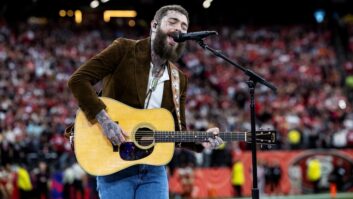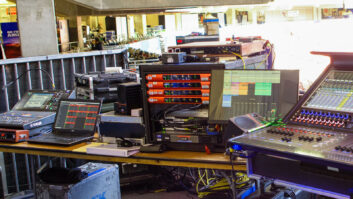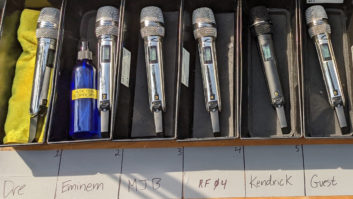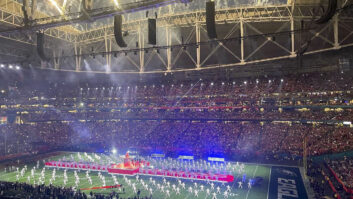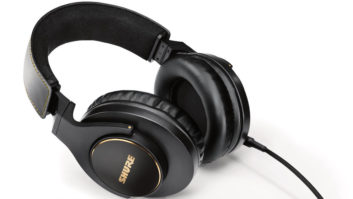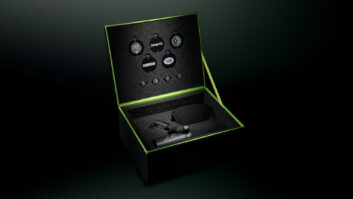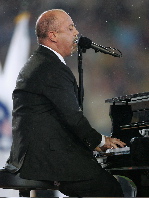
Behind-the-scenes at Dolphin Stadium, Professional Wireless Systems founder James Stoffo returned for his 11th Super Bowl to choreograph an infallible RF blueprint using 14 channels of Shure UHF-R wireless as well as a supporting cast of PSM 700 in-ear monitoring systems.
“The big show for RF mics this year was definitely pregame,” notes Stoffo, who made the trip from his base of operations in Portland, Ore. “UHF-R systems with SM58A-equipped transmitters were used for vocalist Anane, who accompanied Louie Vega and his Elements of Life Orchestra, as well as special guest performer Gloria Estefan. Spread among the Cirque performers on the field, UHF-R bodypacks were the order of the day using WH20 headset mics also supplied by Shure, as well as the company’s WLM-50 subminiature lavaliere mics. We miked two groups of percussionists with SM98s. Billy Joel sang the national anthem using a hardwired SM58, and monitoring across the board, as needed, was supplied by wireless Shure PSM 700 systems.”

Read about the staging and design of Prince’s Super Bowl XLI Halftime show at livedesignonline.com.
Faced with more than 1,500 competing wireless devices on the field, Stoffo relied upon helical antennas to help cut through the clutter. Beyond the buzzing hive of potential interference coming from within Dolphin Stadium, external threats to his plan loomed large in the form of local high-powered digital and analog television transmitters.
“I did my first sweep in here a couple of months ago and quickly discovered that we were within easy eyesight of a huge antenna farm shared by Miami and Ft. Lauderdale TV stations,” Stoffo says. “The resulting RF noise floor is probably the worst I’ve seen anywhere and on any show I’ve ever done.”
Stoffo found Shure’s UHF-R wireless advantageous for the assignment for a number of reasons. “I absolutely needed its 60 MHz bandwidth potential to pull and pick my frequencies from,” he says. “With back-to-back DTV signals bombarding the stadium, as much as 30 MHz of the spectrum was unusable at any given moment. With UHF-R, I always had 30 MHz of clean space to hop to.”
Equally important was UHF-R’s transmitter power output, which, when switched into high-power mode, offered 100-milliwatt performance. “Anyone wearing a bodypack was switched to high-power,” Stoffo adds. “Because this was a very bodypack-intensive show with lots of lavs and headset mics, we needed that extra push. Unlike a handheld transmitter, a bodypack places its antenna right up against the body. That absorbs a tremendous amount of transmitting energy right out of the gate. Having the ability to transcend normal output strengths was a godsend in this environment.”
Stoffo first beta-tested UHF-R two years ago at Super Bowl XXXIX. At last year’s game, he used 20 UHF-R channels for both pregame and halftime shows, including a performance by the Rolling Stones.
For more information, visit www.shure.com and www.superbowl.com.

